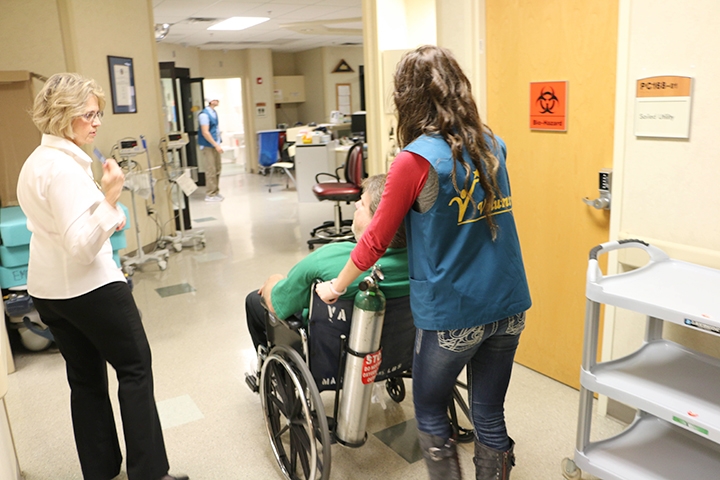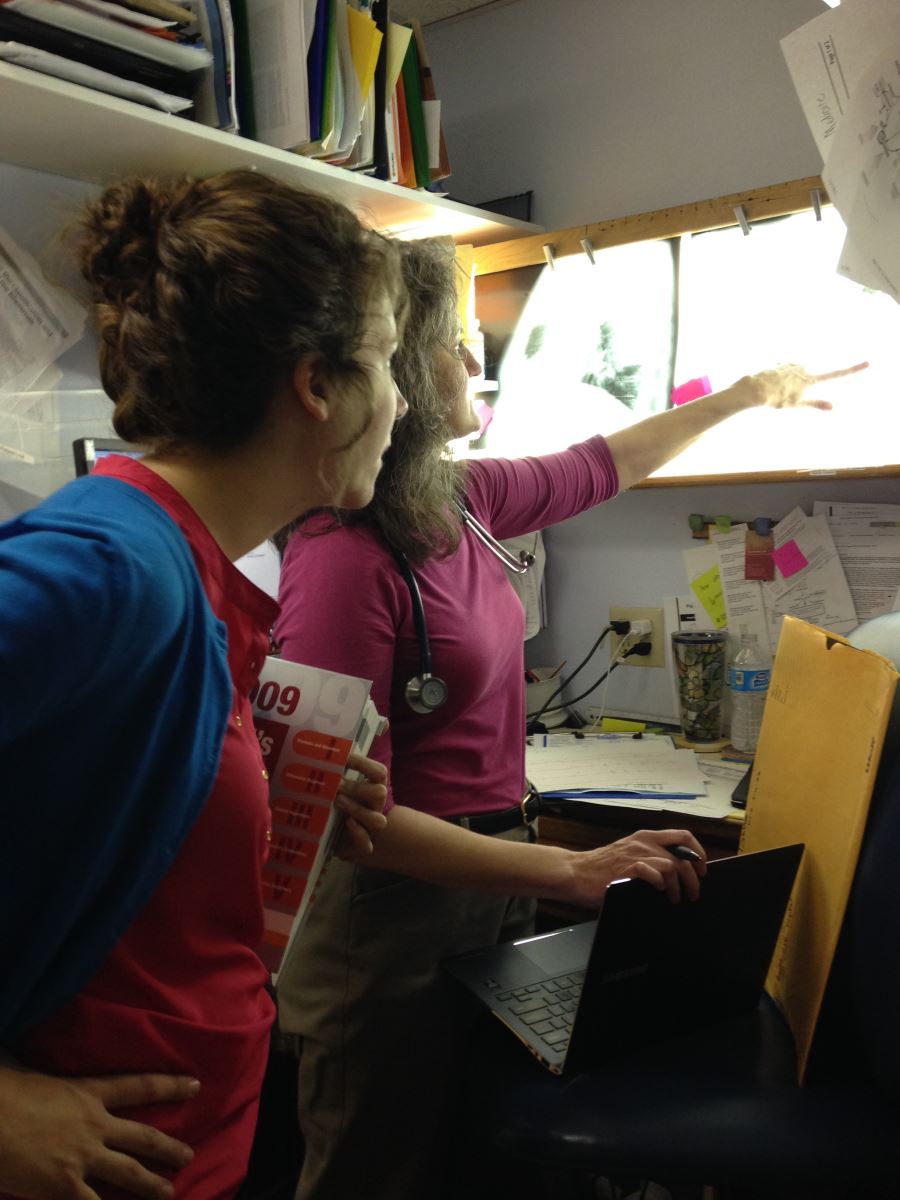
Educating pre-med students in the natural sciences is vital for training future medical professionals — but so is fostering a sense of compassion for the patients they will serve.
Doctors and other health care professionals need to understand something about their patients' lives and the communities in which they live to provide well-rounded care, said Casey Kayser, clinical assistant professor in the Department of English in the J. William Fulbright College of Arts and Sciences and member of the U of A Service Learning Committee.

That's why Kayser teaches the Medical Humanities Colloquium, a special topics service-learning course for juniors and seniors in the pre-med curriculum. The colloquium exposes students to literature dealing with a range of medical issues and includes a service-learning and experiential component which connects classroom learning to real life experiences.
Students shadow physicians in area clinics and volunteer in nonprofit settings such as at Circle of Life Hospice, the Elizabeth Richardson Center and Life Styles.
The popular course — Kayser said there is a waiting list each time the class is offered — focuses on the social rather than technical aspects of medicine, preparing students to work with people as well as conditions and illnesses.
Throughout the course, Kayser said students explore issues of race and ethnicity, gender, disability, socio-economic status and more, with an emphasis on how those factors impact the medical encounter. They learn to place patients within their broader community contexts, recognizing the roles community plays in individual health and wellbeing.
Texts include the Pulitzer Prize-winning play Wit by Margaret Edson; the novel Ceremony by Leslie Marmon Silko; the anthology On Doctoring: Stories, Poems, Essays edited by Richard Reynolds and John Stone; and Complications: A Surgeon's Notes on an Imperfect Science by Atwul Gande.
"Students become more compassionate people if they study literature and understand the human condition," Kayser said. "The goal is to foster a more compassionate, community minded, and culturally competent kind of medicine."
The course also helps develop practical skills for future use, Kayser said. Analyzing literary texts helps students analyze a patient's story. Critical writing trains them for writing case studies. Reading other physicians' perspectives and engaging in reflective writing encourages students to develop strategies for self-care and learn how to reflect on their own life journeys.
Pre-med student Amberley Vaughan, who took the class as a junior in spring 2017, said shadowing a family physician at the West Washington County Clinic in rural Lincoln gave her insight she couldn't have gleaned in a classroom.
Vaughan said she was moved by the gentleness the doctor showed her patients, and became increasingly aware of the cultural and socioeconomic factors that influence patients' lives. She also gained a deeper appreciation for the complexities of interpersonal communication as she watched Dr. Susan Ferguson go about her rounds.
"She said something that goes hand in hand with what we're studying in class: You both have an agenda. The doctor has an agenda and the patient has an agenda. You're trying to balance, making sure you get done what you have to do, but still hearing the patient out. The physician has to put their agenda on the back burner, but not forget it," Vaughan said.
Vaughan also volunteered with Circle of life Hospice in Springdale during her time in the class. She plans to take her experiences with her to medical school and her future career.
"The class is completely transformative for students," Kayser said. "So much of their coursework is focused on chemistry and biology. They're not given the opportunity to reflect on what it means to be a doctor, to reflect on their career path. This gives them the opportunity. It's very relevant for their lives.
"It's also very rewarding for me to work with talented pre-med students and help them learn more about themselves and their future careers."
Topics
Contacts
Bettina Lehovec, staff writer
University Relations
479-575-7422,
Andra Parrish Liwag, director of communications
J. William Fulbright College of Arts and Sciences
479-575-4393,